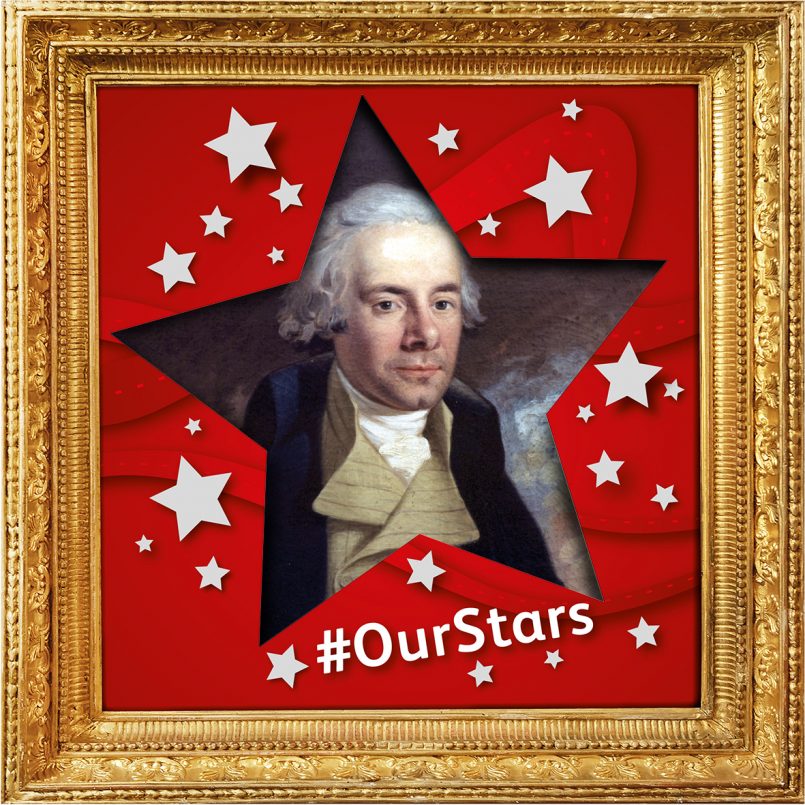
Our William used his position and influence in Parliament to become involved in the eradication of the slave trade. Read all about him below…
Name: William Wilberforce
Known for: Philanthropist, politician and leader of the movement to eradicate the slave trade
Born in Hull, 1759 and died in London, 1833.
Early Life
William was born as the only son of a wealthy merchant, Robert Wilberforce and his wife, Elizabeth Bird in a house on the High Street in the Old Town of Hull. His grandfather, William, made his fortune in maritime trade with Baltic countries and was also elected mayor of Hull, twice.
Education
He started his education at Hull Grammar School but was sent to live with his aunt and uncle in London, aged nine, after his father died. After a time at a boarding school in Putney, he was returned to Hull, aged 12, by his mother and grandfather who did not agree with his aunt and uncle’s “non-conformist” attitudes to the church. He was then sent to complete his education at Pocklington School.
At age 17, he attended St John’s College, Cambridge where, despite pursuing a lively lifestyle, he managed to pass all of his exams and obtain both a B.A. and a M.A.
Career and the End of the Slave Trade
Wilberforce went on to become the elected MP for Kingston upon Hull at 21 years old, whilst still a student.
Having enjoyed a hedonistic lifestyle of gambling, Wilberforce was gradually becoming a reformed character and was gathering vast evidence of the cruel treatment of slaves. He went on to use his position and influence in Parliament to become involved in the eradication of the slave trade.
However, it wasn’t until one month after his death that the House of Lords finally passed the ‘Slavery Abolition Act’ which finally saw an end to slavery from the British Empire from August 1834.
Likes: Cards and gambling – until he saw the light!
What they say about him:
Madame de Staël says, “the wittiest man in England’
Prince of Wales, “I’d go anywhere to hear him sing”
